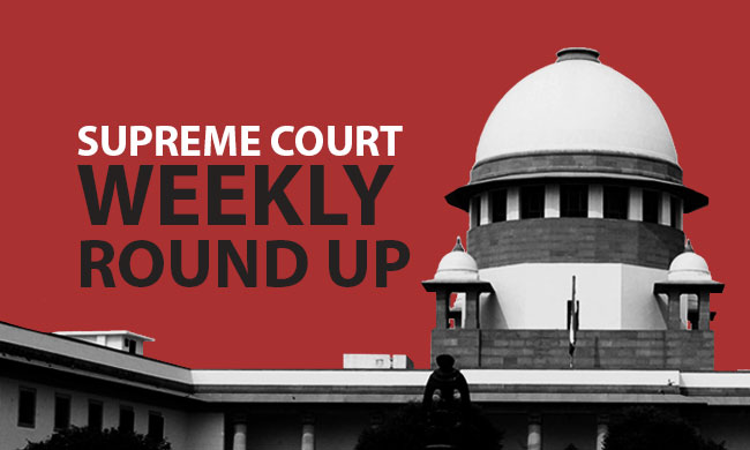- Home
- /
- Top Stories
- /
- Supreme Court Weekly Round-Up
Supreme Court Weekly Round-Up
LIVELAW NEWS NETWORK
30 Sept 2019 9:28 AM IST
Succession To Mutawalliship By Descendant Through Female Line Not Barred[Md. Abrar vs. Meghalaya Board of Wakf] The Supreme Court held that there is no legal bar on cognatic heirs of the waqif from succeeding to mutawalliship. The bench comprising Justice NV Ramana, Justice Mohan M. Shantanagoudar and Justice Ajay Rastogi reiterated that in order to establish a claim of...
Next Story



